Founded in February 1983, the Kurdish Institute of Paris (KIP) is an independent, non-political, secular organization that supports Kurdish intellectuals and artists from different horizons as well as Western specialists on Kurdish Studies.
Forty years ago in Paris, KIP was founded with one mission at its core: to promote Kurdish culture beyond the borders of Kurdistan.
KIP seeks to preserve the Kurdish community’s linguistic, historical, and cultural identity, helping Kurdish immigrants integrate into their European host communities, and raising awareness about Kurds, their culture, homeland, and current circumstances among the broader public in France and beyond.
In an exclusive interview, Kurdistan Chronicle spoke with Dr. Kendal Nezan, a respected Kurdish nuclear physicist and president of KIP about the fascinating journey of the institute, its achievements, and its plans for the future.
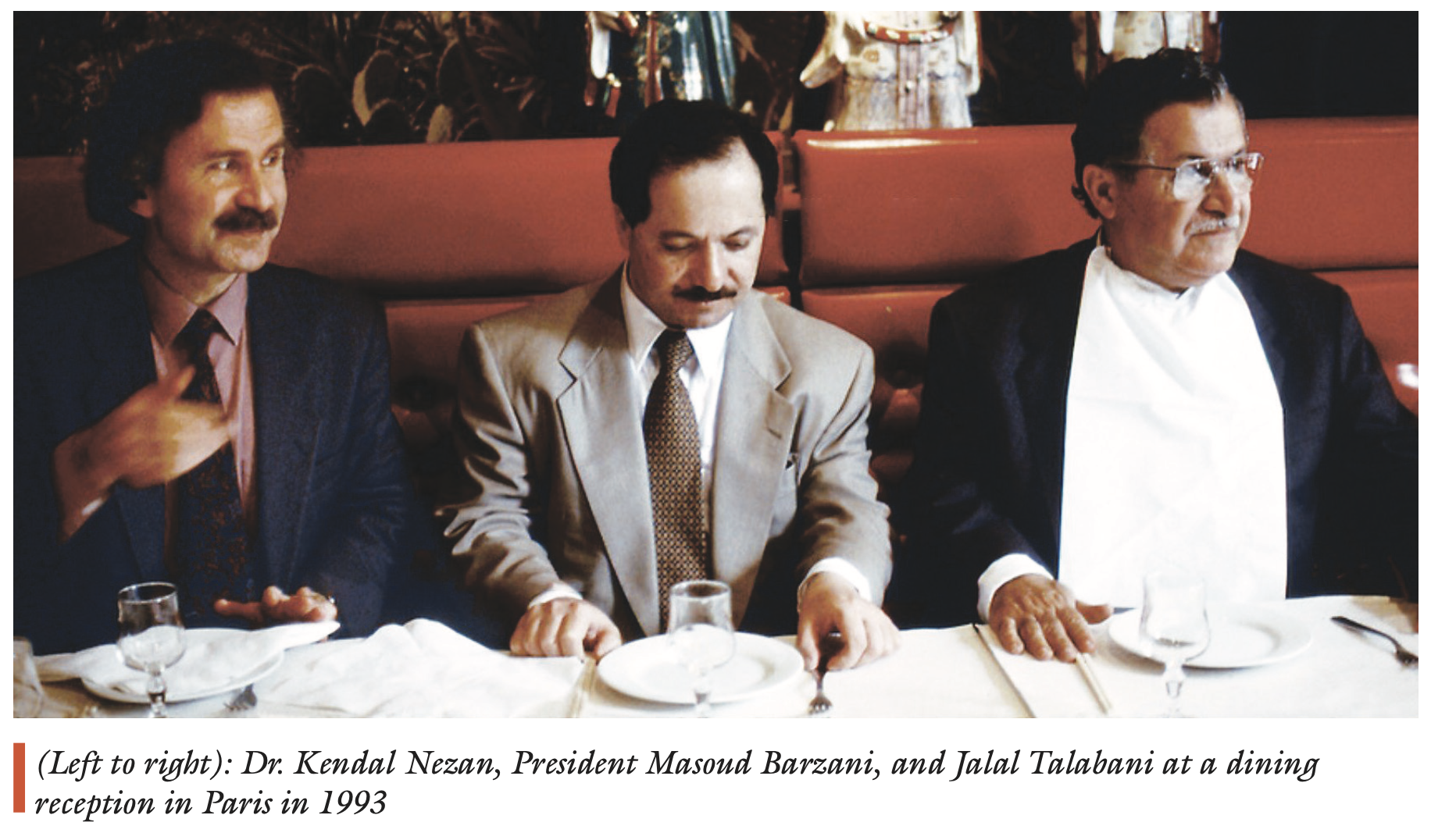
Kurdistan Chronicle (KC): This is the 40th anniversary of KIP, which has played a remarkable role in promoting Kurdish culture on an international level. Could you tell us about the birth of the institute, the ideas behind it, and why such an organization was necessary back then?
Kendal Nezan (KN): KIP was established in February 1983 at a time when the Kurdish people were undergoing one of the darkest periods in their history. The Iran-Iraq war, Saddam Hussein's war against the Iraqi Kurds, Ayatollah Khomeini’s war against the Iranian Kurds, and the terrible military coup of September 1980 in Turkey all led to the influx of tens of thousands of Kurdish asylum seekers to Europe and France. The Kurdish resistance became divided, fragmented, and inaudible in Europe.
It was against this backdrop that we founded KIP with filmmaker Yilmaz Guney, who had just won the Palme d’Or at the Cannes Film Festival for his film Yol, and a dozen other Kurdish intellectuals and artists from all parts of Kurdistan. Among the founders were Cigerxwin, Hejar, Taufiq Wahby, Ismet Cheriff Vanly, Nuredin Zaza, Qanate Kurdo, Heciye Cindi, the painter Remzi, Ordixane Celil, and Osman Sabri. By bringing these great figures, we wanted to give the Kurdish people a glimmer of hope and become a symbol of Kurdish moral unity. Later, around a hundred other Kurdish, French, and Western intellectuals and artists joined the institute’s ranks, including Dr. Joyce Blau, Dr. Najmiddin Karim, Dr. Fuad Hussein, Dr. Abbas Vali, Sivan Perwer, and Mehmed Uzun.
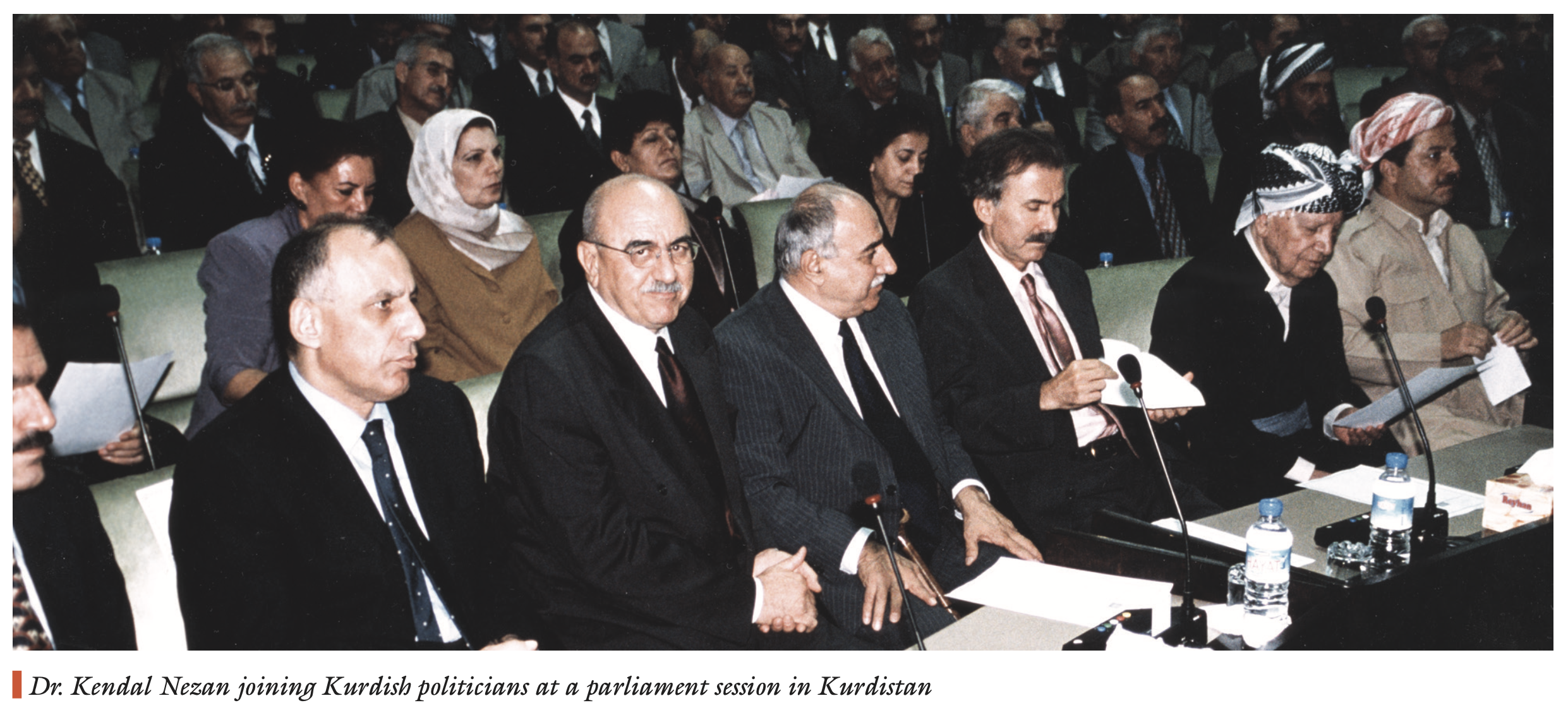
KC: KIP is deeply involved in diplomacy, working like a Kurdish embassy in the French capital. To what extent has it contributed to strengthening relations between Kurdistan and France? How did you manage to attract so many top French politicians to the Kurdish cause?
KN: At the outset, our activities focused on welcoming and guiding our Kurdish compatriots who were seeking asylum and setting up a documentation center to help journalists learn about the situation of the Kurdish people. At the time, the institute was the only permanent independent Kurdish structure open to the public.
Thanks to its interactions with the French and Western media, it soon became well known in political circles, first in Europe, later in the United States and Soviet Union. The support of personalities such as Danielle Mitterrand, the wife of then-French President François Mitterrand; Dr. Bernard Kouchner, former French Minister of Foreign and European Affairs; Jack Lang, former French Minister of Culture; and Swedish politician Pierre Schori, has helped us enormously and opened many doors.
As spokespeople for a people without a voice on the international stage and without an embassy or recognized political representation, we mobilized our energy and our Western friends to promote international public opinion in favor of the Kurdish cause. After the gassing of Halabja, we organized an international conference in Paris in October 1989, with the support of the French government, to internationalize the Kurdish question. For the first time, representatives of all Kurdish political parties without exception were brought together, along with delegations from 32 countries. The U.S. delegation was led by Senator Clairborne Pell, the then-Chairman of the Senate Foreign Relations Committee; the Soviet delegation included Yelena Bonner, the wife of physicist Andrei Sakharov, Kurdish academics Nadir Nadirov and Shakire Miho, and the historian Manvel Gasratjan.
On February 27, 1991, we organized a conference in the U.S. Senate on the future of the Kurds after the Gulf War, attended by Kurdish leaders such as Jalal Talabani, Bayan Sami Abdul Rahman, Hoshyar Zebari, Adnan Mufti and eight leading U.S. Senators including Edward Kennedy, Clairborne Pell, John Kerry, Paul Simon, and Nancy Pelosi. This “Kurdish lobby” played a decisive role during the Kurdish exodus of 1991 in influencing the U.S. decision to support UN Resolution 688 and create a safe haven for Iraqi Kurds. The late Dr. Najmaldin Karim, Vice President of KIP at the time, and U.S. diplomat Peter Galbraith played an important role in our activities in the United States.
In July 1990, we also organized a three-day international conference in Moscow through the Marx-Engels-Lenin Institute of the Central Committee of the Soviet Communist Party, with the support of President Gorbachev. Over 1,400 Kurdish delegates from nine Soviet republics attended the conference, the stated aim of which was determining the status and future of the Kurds in the Soviet Union. We worked with the Soviet Ministry of Foreign Affairs to invite some twenty Kurdish political figures, including Bayan Sami Abdul Rahman, Dr. Mahmoud Othman, Dr. Sadegh Sharafkandi, and Aziz Mohammed, former Secretary General of the Iraqi Communist Party. On the sidelines of the conference, President Mikhail Gorbachev’s diplomatic adviser, Yevgeny Primakov, who later became Prime Minister, held a lengthy meeting with the Iraqi Kurdish leaders. This conference, publicized in the Soviet press, raised awareness of the plight of the Kurdish people in Iraq among the public and Soviet politicians. I believe it played an important role in the Soviet decision to support UN Resolution 688. President Gorbachev and his wife Raissa had been made aware of the Kurdish question by Danielle Mitterrand and were sympathetic to the aspirations of the Kurdish people.
In the field of lobbying, among many other activities which, for lack of space, cannot be described here, let us mention the International Appeal for the Defense of Kurdish Culture in Turkey signed by a thousand personalities from several countries, including 24 Nobel Prize laureates, some 15 American senators, Winnie Mandela, and Danielle Mitterrand. Published in major Western newspapers, including Le Monde, International Herald Tribune, The Guardian, and Frankfurter Allgemeine Zeitung, as well as Turkish newspapers in June 1988. the appeal had a major impact in Turkey, where President Turgut Ozal finally abolished the laws in 1991 that had banned the use of the Kurdish language and publications in Kurdish and about Kurds. KIP also popularized the cause of the Kurdish deputies imprisoned in Turkey in 1994 by creating an international defense committee chaired exceptionally by President François Mitterrand. As a result of this campaign, the European Parliament awarded its prestigious Sakharov Prize to Kurdish MP Leyla Zana, who was also nominated for the Nobel Peace Prize.
Few people remember that it was KIP that organized the first conference in Oslo in June 1995, in partnership with the Norwegian Ministry of Foreign Affairs, to seek a political settlement to the Kurdish question in Turkey. In 2008, we also launched an appeal for a peaceful settlement of the Kurdish question in Turkey, signed by a thousand Kurdish personalities from all political and cultural walks of life, including mayors, members of parliament, and intellectuals. This appeal, published in the international press, created a public debate on the subject in Europe and Turkey, and served as the basis for the peace process later launched between Turkey and the Kurdistan Workers’ Party, a process which, despite the announced Dolmabahce protocol agreement, has not yet come to fruition.
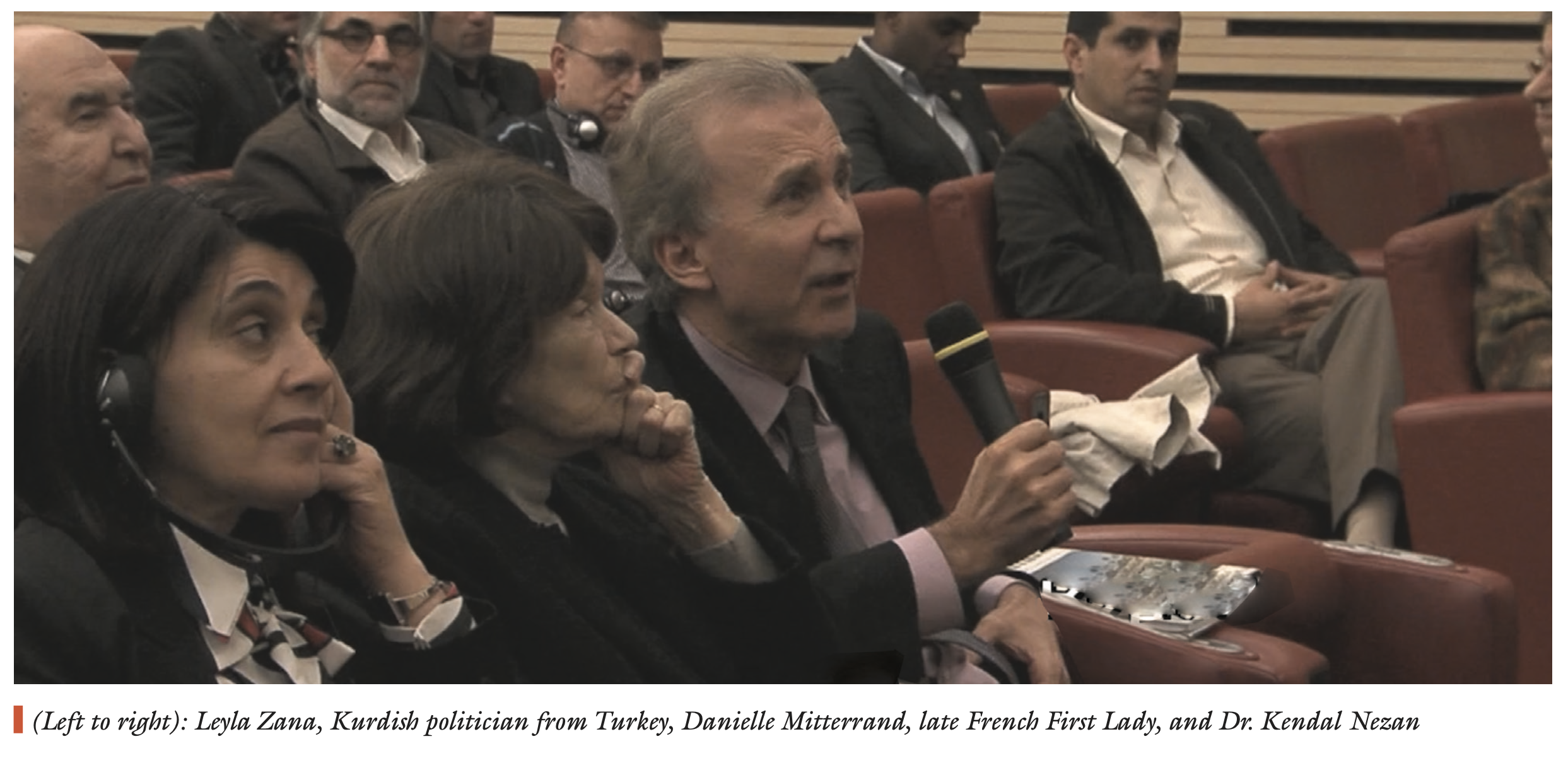
KC: The institute’s website states that many foreign intellectuals and artists over the years have joined KIP’s Sponsorship Committee and advanced its mission. On the list, the name Simone de Beauvoir caught my attention. Could you explain more about her role and that of others who have offered you a helping hand?
KN: Before KIP was founded, as a young student I set up a France-Kurdistan Association with writer Gerard Chaliand and a few friends to inform the French public about the Kurdish cause. We began by meeting leading French intellectuals, raising their awareness and gaining their support. This is how I met Jean-Paul Sartre and Simone de Beauvoir, who agreed to be part of our Sponsorship Committee and gave us very useful advice and media contacts to publicize the Kurdish cause. Among other activities, the association has published a collective work entitled People Without A Country: The Kurds and Kurdistan, which has been translated into ten languages.
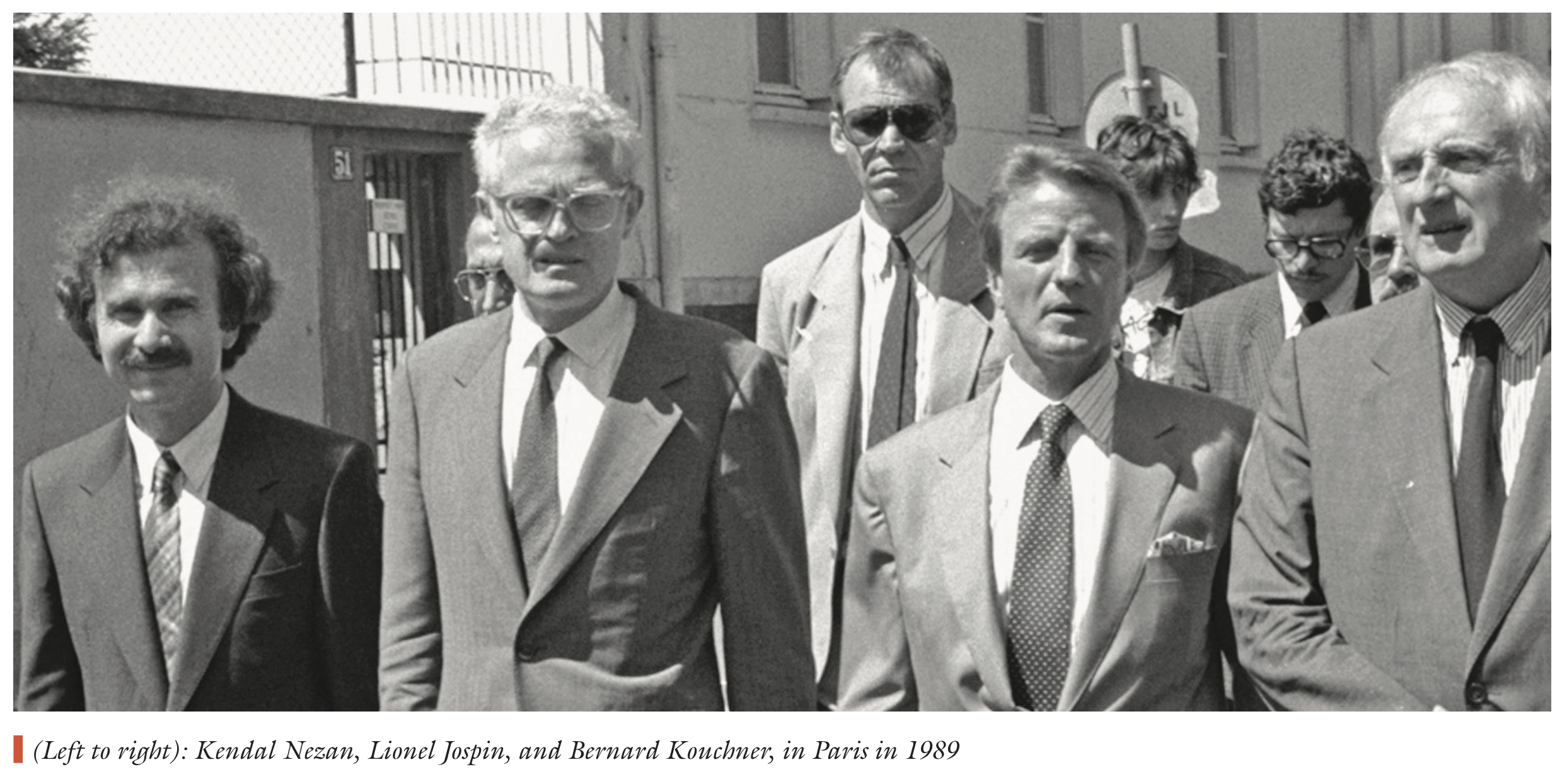
KC: Since the very beginning, you have always tried to keep an equal distance from Kurdish political parties and stay out of their disputes to remain impartial. Yet the institute has managed to play an important role in promoting the Kurdish cause. How did you manage that?
KN: KIP is an NGO, an initiative of independent Kurdish citizens. We want to have the best possible relations with all Kurdish political parties which, in their diversity, are indispensable to Kurdish political life. But we do not want any party or government to control KIP. Likewise, we have refused to enter into any relationship with any state that oppresses its Kurdish population or any non-democratic state. It is this independence that ensures the institute’s credibility with institutions and public opinion. As probably the first independent Kurdish NGO in history, we have sometimes been met with incomprehension on the part of certain Kurdish partners, but our independence is now accepted.
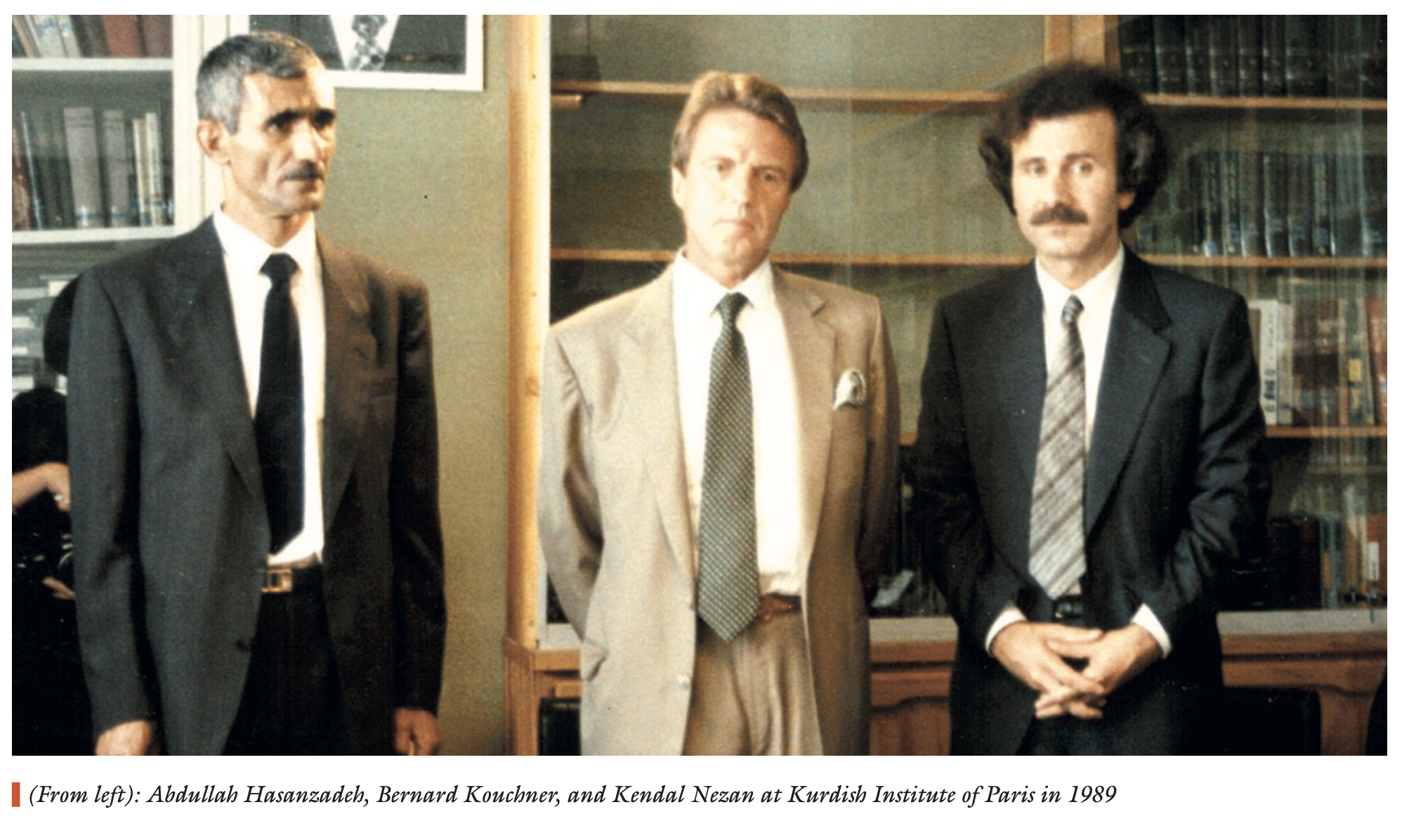
KC: It goes without saying that KIP has contributed massively to Kurdish culture and literature. Your institute has published or supported the publication of countless books and prints Kurmancî magazine. How do these cultural publications make an impact, especially among the French scholars who study Kurdistan?
KN: Our work in the field of language has made a major contribution to the standardization and revival of Kurmanji. Since 1987, we have been bringing Kurdish writers and linguists together twice a year for a week-long linguistic seminar. The vocabulary of the various Kurdish languages is systematically collected and translated into English, French, and Turkish. We also propose terminologies for the various domains of modern life to make Kurmanji a rich, modern language. This work is published in the Kurmancî magazine, which has 68 issues published to date, and translated into Turkish by the institute of Kurdish Grammar founded by Celadet Ali Bedir Khan and Roger Lescot. This has enabled the Kurds of Turkey, as well as those of Syria, Lebanon, and the Caucasus, to have a largely standardized language currently used by almost all Kurdish media. In 2017, we also published a Kurdish-French Dictionary with 85,000 entries, a Kurdish-Turkish version of which is due to appear in 2024. KIP has also supported seminars on the Kirdki-Dimilki dialect, also known as Zazaki.
In addition, we have published numerous books and journals, including Hêvî, Studia Kurdica, and Etudes Kurdes and have amassed the richest Kurdish library abroad, with over 12,000 monographs in 25 languages, tens of thousands of documents, newspaper collections, music archives, and video archives, attracting researchers from all over the world, including China, Japan, Australia, Mexico, and Brazil. More than a million pages of our library’s books and archives are digitized and, for the most part, available online at bnk.institutkurde.org.
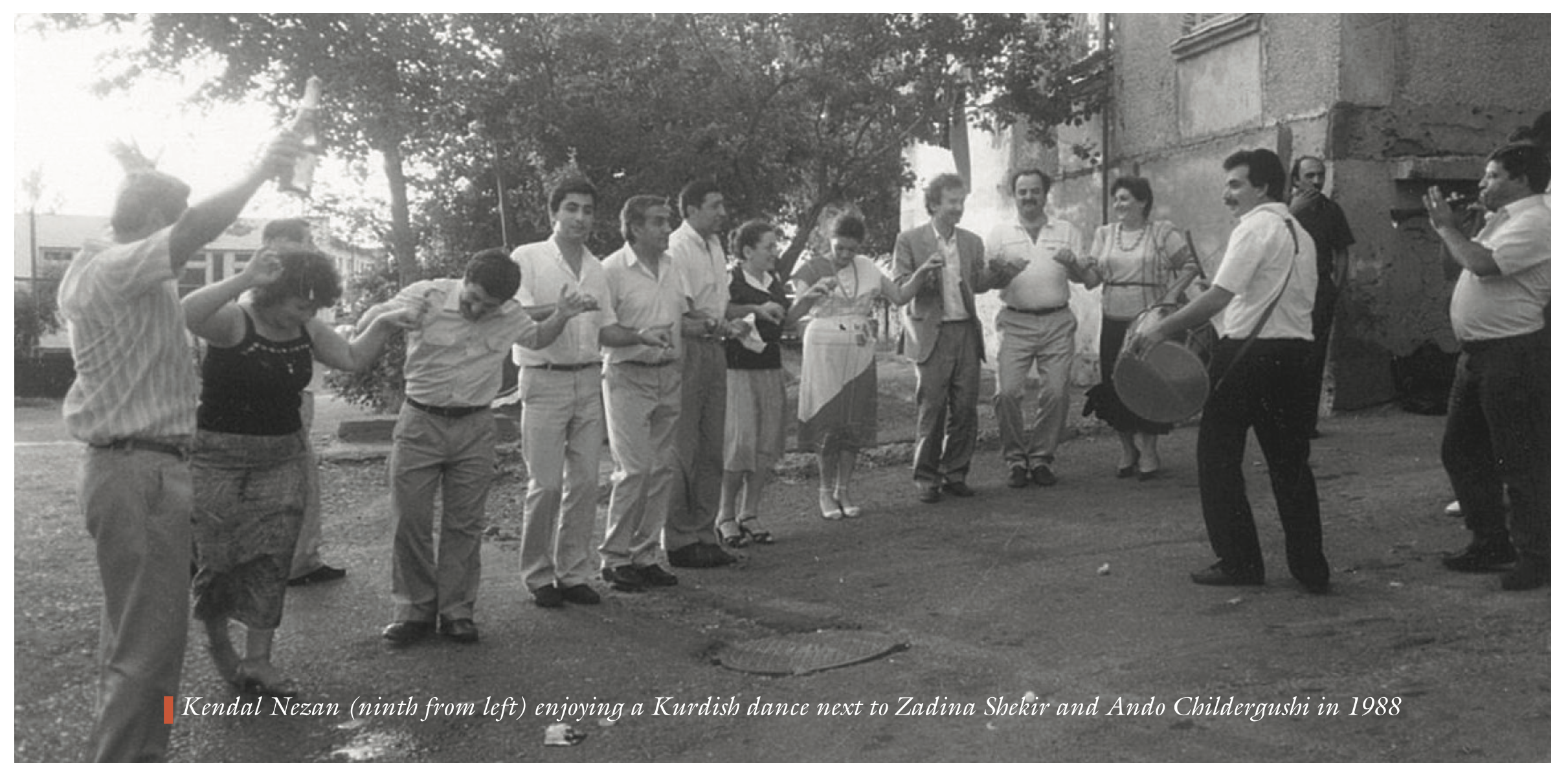
KC: Some people may believe that after four decades, KIP is no longer as active as it was in the 1980s and 1990s. How do you see your institute today?
KN: Over the past 40 years, the world has changed a great deal. The Middle East has undergone upheavals, and Kurdistan has changed too. In the age of the Internet, satellite TV, and smartphones, KIP is adapting its missions. Iraqi Kurdistan has become a quasi-state, hosting some thirty consulates with its own representations abroad, and we are delighted by this. Rojava also has some representation here and there. In this context, the institute’s diplomatic action, or rather its public and cultural diplomacy, is becoming less visible and less publicized, except in times of crisis like the war against ISIS in 2014-2015.
After the Turkish incursion of Afrin, for example, the French National Assembly voted unanimously in favor of a resolution condemning it as a violation of international law at the suggestion of the institute. It is very rare for a resolution to be passed unanimously, and it was a great moral success for the Kurdish population, even if it did not change the situation on the ground.
More recently, on April 4, 2023, a host of celebrities, including former President François Hollande, former Prime Minister Lionel Jospin, Paris Mayor Anne Hidalgo, former Minister of Culture Jack Lang, diplomats, and well-known intellectuals attended the Institute’s 40th anniversary celebration in the magnificent salons of Paris City Hall.
With its modest financial means, KIP continues to pursue its basic missions: a library for students, researchers, and journalists from all over the world; the publication of monthly newsletters in French and English, with 462 issues to date; reviews and books; artistic activities such as painting and photography exhibitions; Kurmanji seminars; and a program to train Kurdish secular elites in French universities. This program has trained over 540 Kurdish students to date from all regions of Kurdistan, the Caucasus, and Khorasan, many of whom have gone on to become university professors, engineers, lawyers, filmmakers, and diplomats. There are 25 PhD students from Turkey and Iran currently enrolled in the program, including 17 women. KIP has always given priority to the education of women, whose emancipation is fundamental to building a free and democratic future.
With greater financial resources, we could have invested more in building a more informed and better organized Kurdish diaspora, which numbers over two million and could play a major role in the building of a free and democratic future for the Kurdish people.
Jan Dost is a prolific Kurdish poet, writer and translator. He has published several novels and translated a number of Kurdish literary masterpieces.

